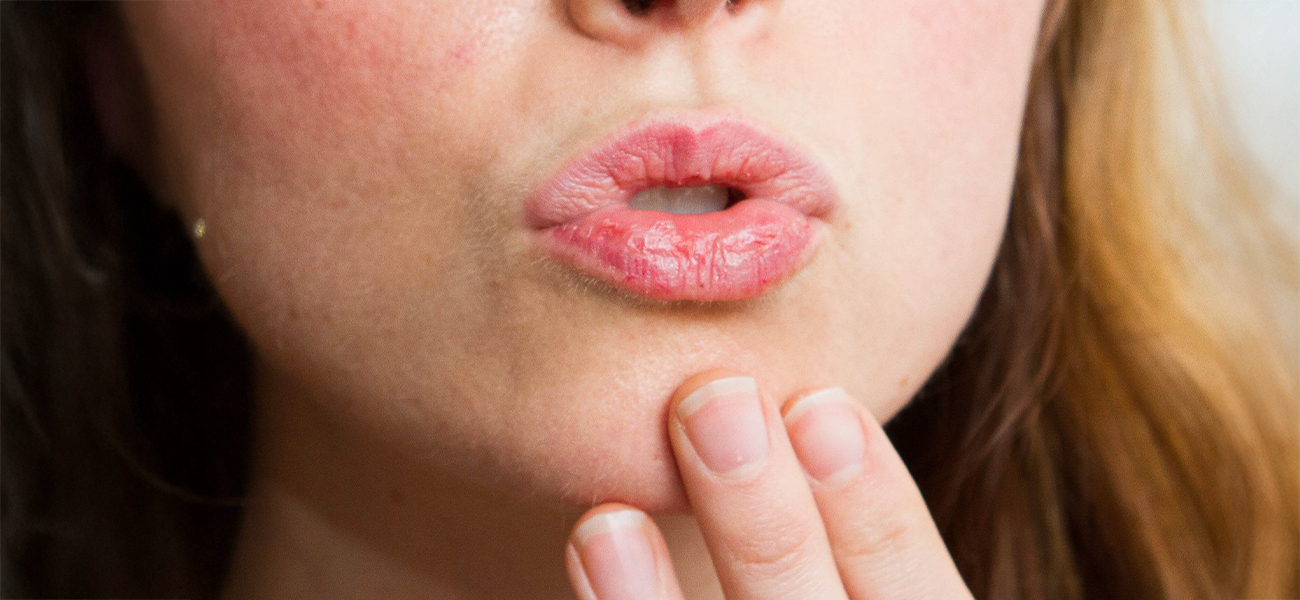Lip Cancer
Lip cancer is a type of skin cancer that affects the lips and can lead to serious consequences if not detected early. It tends to occur more often on the lower lip, which is more exposed to sunlight, and its symptoms are often mistaken for simple skin problems or mouth sores. However, when detected early and treated appropriately, the disease can be effectively controlled, with high chances of recovery.
Symptoms of Lip Cancer
Lip cancer begins with subtle changes that are often difficult to notice. It typically starts on the surface of the skin and, if left untreated, can spread to deeper tissues and other organs. Recognizing these symptoms is vital for early detection. Here are the main symptoms of lip cancer:
Non-Healing Sores
If you have sores on your lips that persist for a long time or keep recurring, it should not be ignored. While normal sores usually heal within days or weeks, those associated with lip cancer tend to become chronic and show no signs of healing. These sores can be painful or painless.
Color Changes
White or red patches on the lips can be a sign of lip cancer. These patches often have a rough texture and may grow over time. Because such color changes can be mistaken for other health issues, it is important to consult a specialist if they persist.
Bleeding
Frequent, unexplained bleeding on the lips may signal lip cancer. If bleeding occurs repeatedly without any trauma or irritation, it should not be overlooked.
Swelling or Lump
A painless swelling or lump on or around the lips may indicate a cancerous tumor. These swellings typically grow slowly but become more noticeable over time.
Chronic Dryness and Cracks
Persistent dryness or cracking of the lips, even with regular use of moisturizers, can also be a symptom. If chronic cracking occurs alongside other symptoms, it is important to seek medical advice.
If any of these symptoms persist for several weeks, it is essential to consult a doctor for early diagnosis. Detecting lip cancer in its early stages significantly increases the chances of successful treatment.
Causes of Lip Cancer
A combination of environmental and genetic factors can contribute to the development of lip cancer. Below are the primary causes:
Excessive Sun Exposure
Prolonged unprotected exposure to sunlight is one of the most common causes of lip cancer. The lower lip is particularly vulnerable to harmful UV rays. Not using sunscreen or not protecting the lips in sunny weather increases this risk.
Tobacco Use
Using cigarettes, pipes, and other tobacco products significantly increases the risk of lip cancer. Harmful chemicals in tobacco cause DNA damage in lip cells, triggering cancer development.
Alcohol Consumption
Alcohol consumption, especially when combined with tobacco use, greatly heightens the risk of lip cancer. Excessive alcohol impairs cell renewal and causes damage that can lead to cancer.
Fair Skin
Individuals with fair skin are more susceptible to the harmful effects of sunlight due to low natural melanin levels, increasing the risk of lip cancer.
HPV Infections
Human papillomavirus (HPV) infections are linked to lip cancer and various other types of cancer. Certain strains of HPV can cause abnormal cell growth, contributing to cancer development.
Age and Gender
Lip cancer is more common in older individuals. Men are at greater risk than women due to higher exposure to outdoor activities and tobacco use.
Treatment Methods for Lip Cancer
Treatment for lip cancer varies depending on the stage, size, and spread of the cancer. Modern medical techniques offer effective outcomes. The main treatment methods are:
Surgical Intervention
Surgery is the most common treatment for lip cancer. During the procedure, the cancerous tissue is completely removed. In advanced stages where the cancer has spread to lymph nodes, these nodes may also need to be removed.
Radiation Therapy
Radiation therapy uses high-energy beams to destroy cancer cells. It is often used when surgery is not an option or to eliminate any remaining cells after surgery.
Chemotherapy
Chemotherapy is used in advanced stages where cancer has spread to other organs. It involves the use of powerful drugs to kill or stop the growth of cancer cells.
Reconstructive Surgery
After surgery, reconstructive procedures may be required to restore the lips’ appearance and functionality. This helps patients recover both visually and functionally.
Prevention of Lip Cancer
Although lip cancer cannot be completely prevented, steps can be taken to reduce risk factors and ensure early detection. Here are some preventive measures:
Protect Your Lips from Sun
- Use lip balms and sunscreens with SPF 30 or higher.
- Wear wide-brimmed hats to shield your lips from the sun on sunny days.
Avoid Tobacco
Quitting smoking and other tobacco products significantly reduces the risk of lip cancer.
Limit Alcohol Consumption
Reducing alcohol intake provides protection not only against lip cancer but also against many other types of cancer.
Schedule Regular Check-Ups
Do not neglect regular oral and dental health examinations. Consult a doctor immediately if you notice any abnormalities on your lips.
Keep Your Lips Moisturized
Keeping your lips hydrated can prevent dryness and cracking, contributing to healthier lips.
Get HPV Vaccinated
HPV vaccines protect not only against lip cancer but also against many other cancers caused by the virus.
Early Detection Saves Lives
Lip cancer is highly treatable when diagnosed early. Therefore, it is important to take any small sores or color changes on your lips seriously. Regular check-ups and adopting a healthy lifestyle can help minimize risks.




